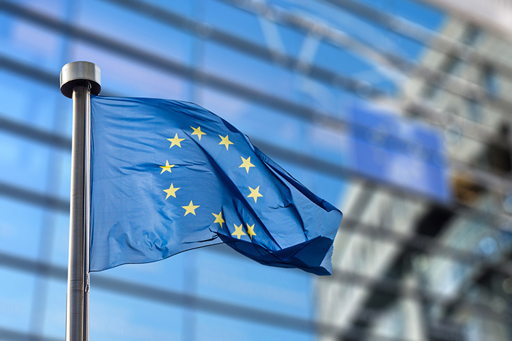As is the case with other sectors, the extent of the impact of Brexit on professional sport will depend on the terms the UK agrees for its continued relationship with the EU.
Below we examine some of the high, medium and low risks primarily from the perspective of an English professional sports club.
Significant Impact post Brexit
Recruitment of young European football players
Article 19 of the FIFA Regulations on the Status and Transfer of Players prohibits the international transfer of players under 18 except in limited circumstances. Clubs based in England can currently take advantage of one of these exceptions which permits the transfer of players between the age of 16 and 18 where the transfer takes place within the territory of the EU or EEA (and certain requirements are met). Clubs have successfully used this exception to recruit 16 and 17 year old players from both the Continent and the rest of the British Isles.
The Premier League does not expect this exception to remain available to English clubs post March 2019. This would mean that January’s transfer window may be the last opportunity these clubs have to sign talented under 18s from Europe. From the summer of 2019 onwards European clubs, specifically those with similar scouting networks and resources to their UK competitors, will effectively have a two year head-start to sign these players on those British rivals. In the era of financial fair play this ability to sign and develop young talent as opposed to buying, and paying a premium for, known commodities may give European clubs an advantage (see below discussion on homegrown player quotas). It will be worth noting whether, during the January 2019 transfer window, UK based clubs choose to focus on signing 16 and 17 year olds at the expense of players over the age of 18 (whose freedom of movement should remain until at least the end of the transition period on 31 December 2020).
Potential Significant Impact post Brexit
Transfer of players to and from European clubs
Under the UK-EU Withdrawal Agreement, there will be no reciprocal free movement obligations after the end of the transition period. As a result, British players may not be able to move to the Continent freely and EU nationals could be subject to entry restrictions when seeking to play in the UK. For example, currently a non-EU footballer from a top 10 ranked nation would need to have played in 30% of international games in the previous two years to automatically qualify for an endorsement from The Football Association (“The FA”) (a prerequisite for getting the visa most commonly used by non-EU footballers to play in England). For nations ranked 11-20 this rises to 45% of international games and then for nations ranked 21-30 and 31-50 it rises further to 60% and 75% respectively. There are currently numerous players in the Premier League who would not meet these requirements.
In rugby union, currently players from outside the EU from tier 1 and 2 rugby nations (which includes teams from New Zealand down to Spain and Namibia) must have started at least one full 15 a-side international match during the 15 months immediately prior to the date of the application to be eligible for a visa. Players from other countries outside the EU must have started an international match in the last 15 months and have played in a minimum of 10 full internationals during their playing career. Therefore, whilst established current internationals would pass this test, uncapped players and those who have been retired from international game for a long period, would be ineligible under these requirements. Brexit will not affect the ability of Irish nationals to play sport in the UK. The Republic of Ireland and the UK are members of the Common Travel Area, an agreement that pre-dates the European Union and its earliest predecessors by several decades. As a key element of the relationship between the UK and Ireland, it is very unlikely that this arrangement will change.
A return to nationality quotas?
When EU law ceases to apply in the UK organisers of sports competitions may be able to more effectively restrict the number of foreign players that feature in match day squads. Foreign player quotas currently exist in some sports (such as Cricket, Rugby Union and Hockey in England) but EU law prevents them being applied to EU nationals or Kolpak players. On Brexit, there is potential for all non-British nationals to be included within such a quota.
Some governing bodies may see this as advantageous in that it would allow them to discriminate in favour of the development of internationally eligible players to the potential advantage of national teams. Leagues, clubs and teams will be less enthusiastic as it would mean that they would be less competitive in their ability to attract the best players from across the Continent.
Particularly prominent in the headlines in late 2018 has been the FA’s proposal to reduce the number of players allowed in a squad who are “non-homegrown”, from the current 17 to 13. Currently to classify as “homegrown” a player must have trained at a club in England or Wales for at least 3 years before reaching the age of 21. There are questions about the merits of plans such as The FA’s; the Premier League points to studies which show that tightening foreign player quotas does not necessarily strengthen a national team. Some will also argue that the success of England’s football teams at all age levels in the last two years suggests an already prosperous development system in this country. Wherever we end up on this, negotiation and compromise will play key roles. In return for Premier League clubs accepting a stricter homegrown player quota, The FA has already proposed effectively eliminating the Governing Body Endorsement scheme, which would make it much easier for clubs to sign foreign (EU and non-EU) players post-Brexit, even if the quantity of such players that they are allowed is reduced.
Hosting Major Sporting Events
In a bid to show that Britain will be “open for business” post-Brexit, UK Sport has released a list of major international events that the UK could bid for over the next 20 years, including football and rugby World Cups, the Ryder Cup, and the starts to all 3 Grand Tours in cycling.
However, it is possible that hosting such events will be more difficult, more expensive, and hence less attractive post-Brexit in the eyes of organisers and governing bodies. For example, the chief executive of the ATP acknowledged that Brexit would be one of the discussion points for “what areas and countries are sustainable as hosts” when the body comes to look at where the World Tour Finals (currently in London) will be held in the next 5 years.
Concerns that tournament organisers may have regarding the viability of hosting a major sporting event in the UK post-Brexit are two-fold. Firstly, participating in international sporting events requires crossing borders (on the part of players, coaches, fans, and equipment). If the UK will no longer be automatically subject to free movement rules, the additional cost and administrative burden associated with the movement of those individuals and equipment into and out of the UK may be problematic. Secondly, as freedom of movement diminishes and it becomes harder for EU (non-UK) nationals to obtain work in the UK, it is likely that the pool of foreign workers, on which many UK international sporting events rely, will reduce. The costs of meeting this shortfall in workers may be significant and will likely impact on the returns available to the governing bodies and international federations who sanction the tournaments, further reducing the attractiveness. If UK Sport is serious about bidding for a wide range of sporting events post-Brexit, it will need to demonstrate that the concerns detailed above can be addressed.
Lower Impact post Brexit
Away fixtures
Under current proposals, EU/EEA citizens will likely be able to visit the UK visa-free after Brexit. They may, however, be subject to an online pre-screening system similar to the ESTA required to visit the USA. This should not significantly affect sports fans visiting the UK for away fixtures. If a more rigorous system were to be implemented, which appears unlikely, this could impact on attendance at cross border fixtures along with the associated effects on the atmosphere inside stadia.
Investment in players and clubs
Fluctuations in the value of the pound may be a common feature of the Brexit negotiations. A drop in the value of the pound could affect the ability of British clubs to recruit foreign players but would make British clubs more affordable for foreign investors.
Broadcasting
Brexit is unlikely to affect the current model of licensing sports broadcasting content on a territorial basis. However, one thing for both rights holders and broadcasters to keep their eye on is the European Commission’s Digital Single Market Strategy which, amongst other things, aims to ban unjustified geo-blocking in the EU and promote portability of online content. This strategy currently excludes from its remit the territorial licensing of sports broadcasts in terms of geo-blocking so the status quo should be maintained in this regard. However, it does seek to enable consumers to view online sports content which they have legally acquired in one member state, while temporarily in another member state. UK consumers may not be able to enjoy this new flexibility post-Brexit and rights holders and their agents will need to factor in this new EU-wide online portability when licensing into the EU. In addition, on Brexit, the UK will have no input on changes to the Digital Single Market Strategy and any future EU regulation of the broadcasting market which could affect how rights to UK events are sold into the EU.
Deporting foreign players?
Under the Withdrawal Agreement, the UK will guarantee that any rights that EU nationals in the UK have as at the end of the transitional period will continue to be respected. The EU27 will reciprocate for UK citizens.
Last updated: 10 December 2018








